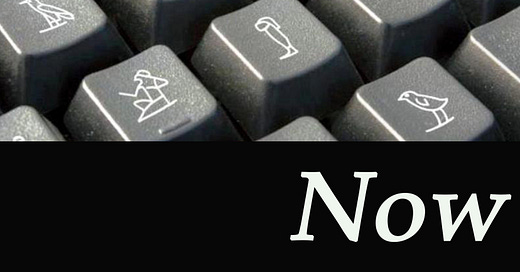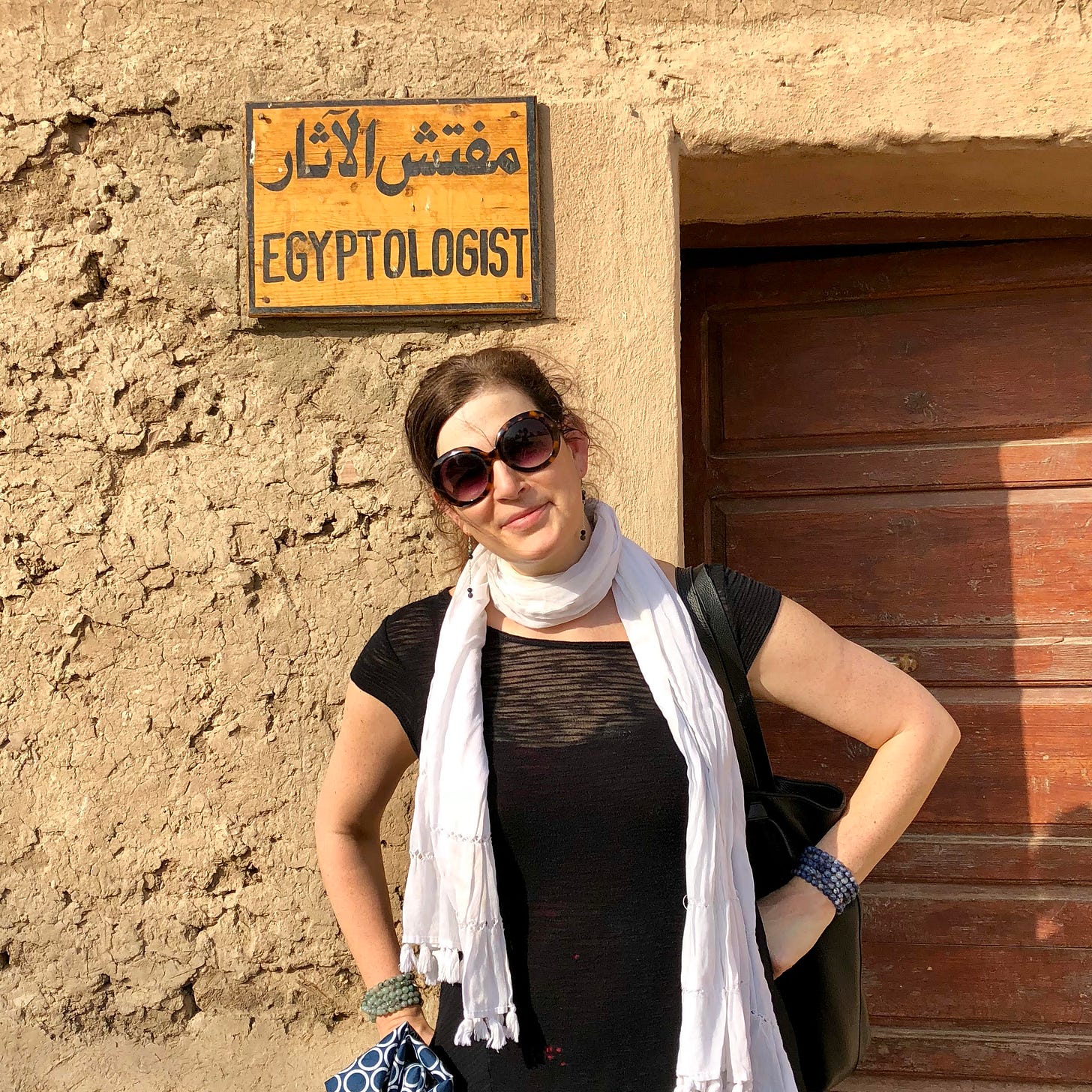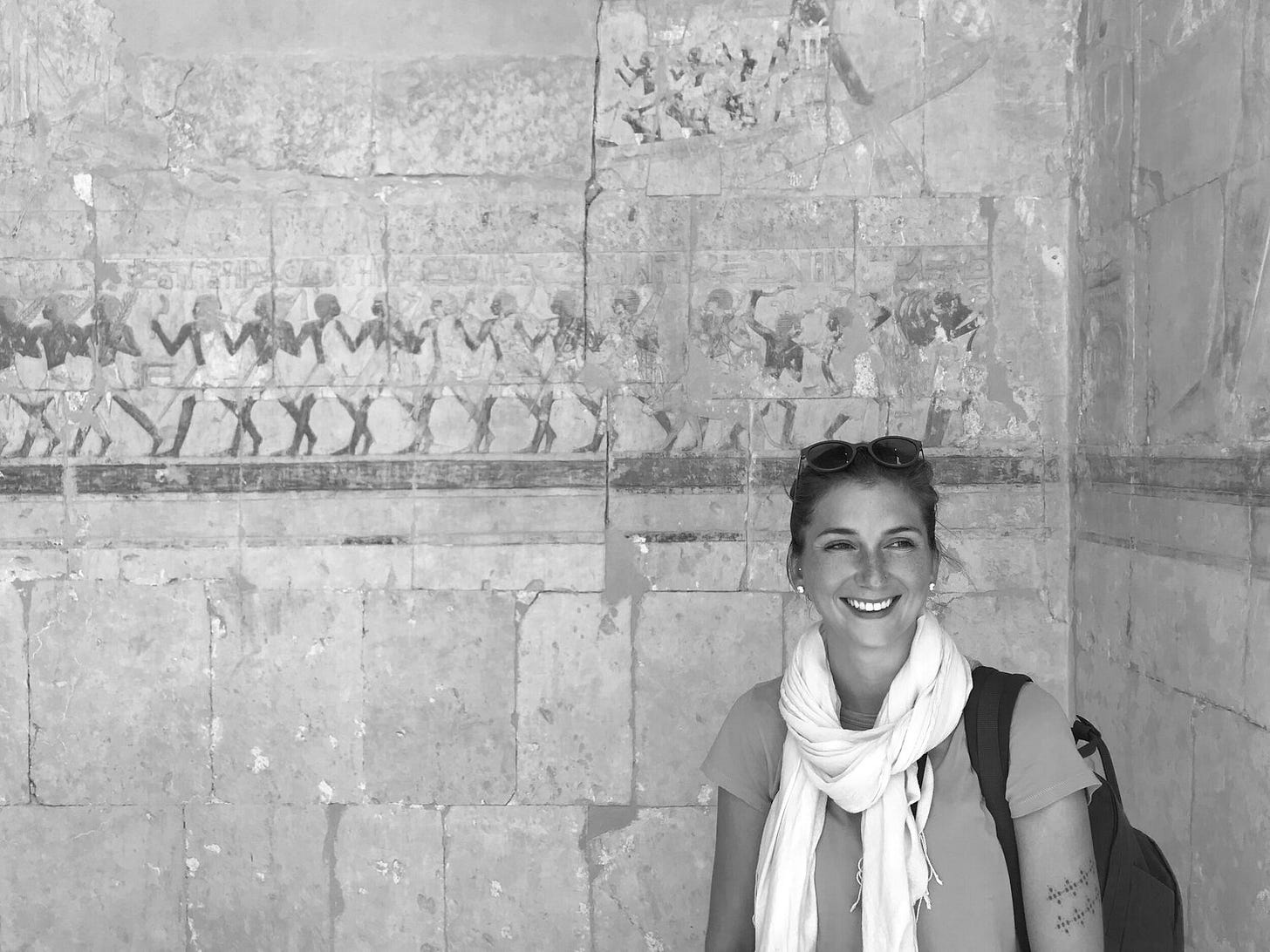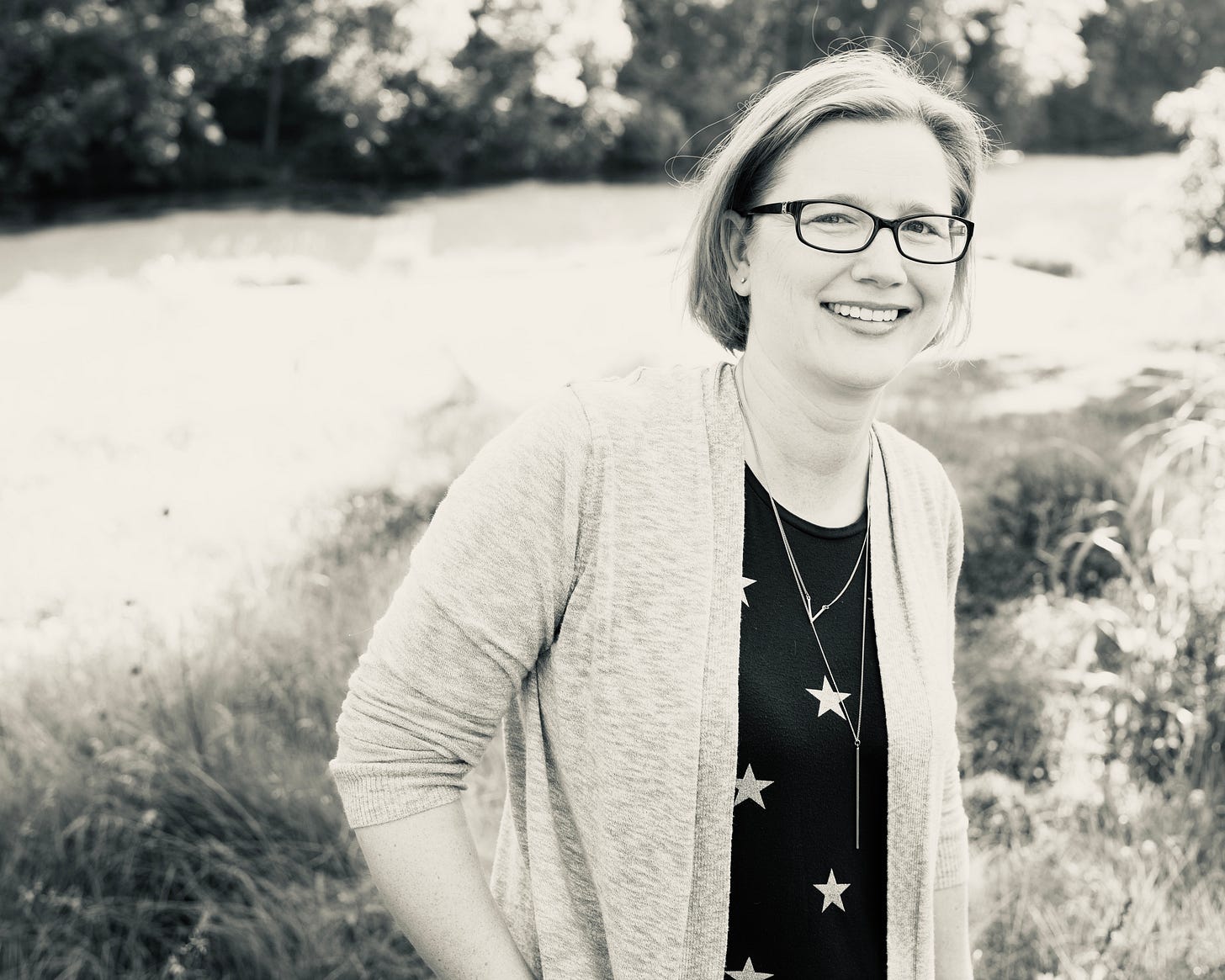Kara Cooney
First, a little about me- I am a professor of Egyptian Art and Architecture at UCLA specializing in craft production, coffin studies, and economies in the ancient world. In 2005, I was co-curator of Tutankhamun and the Golden Age of the Pharaohs at the Los Angeles County Museum of Art and in 2009 I produced a comparative archaeology television series called Out of Egypt, which aired on the Discovery Channel and is now available online via Hulu Premium and Amazon.
Along with my academic publications, I am the author of three trade books, The Good Kings: Absolute Power in Ancient Egypt and the Modern World (National Geographic Press, 2021), When Women Ruled the World: Six Queens of Egypt (National Geographic Press 2018), and The Woman Who Would Be King: Hatshepsut's Rise to Power in Ancient Egypt (Crown Publishing Group, 2014).
My current research in coffin reuse, primarily focusing on the 21st Dynasty, is ongoing. My research investigates the socioeconomic and political turmoil that have plagued the period, ultimately affecting funerary and burial practices in ancient Egypt. This research has taken me around the world over the span of five to six years to study and document more than 300 coffins in museums and collections around the world, including those in Cairo, London, Paris, Berlin, and Vatican City.
For over a decade now my primary way of sharing and interacting with those audiences has been my Facebook page, Twitter, and Instagram. With over 320,000 followers on Facebook, I have invested a lot of time over the years posting there and engaging with people all over the world on a host of topics from history and archaeology to current events. But recent years have made clear just how problematic Facebook and its policies (or lack thereof) are when it comes to creating an online space that actually reaches people who want to read it, not to mention the amplification of endless toxicity and misinformation that spills over into real world lives, society, and politics. This isn’t to say that I’m torching my Facebook page or fleeing Twitter and Instagram. I am still there! But I’m putting less energy into them, in order to create content I can control. And so now I find myself here on Substack, hoping to develop an audience away from the more problematic pay-to-play socials to support a platform that provides a space for content I read and value.
You can find me on Facebook, Twitter, Instagram, and my website. And don’t forget to check out my podcast Afterlives with Kara Cooney wherever you listen to podcasts! All views expressed on my online platforms are my own.
Jordan Galczynski
Hello all!
My name is Jordan, and I will be a contributing writer here at Afterlives After Party. Many of you may know me as the co-host from Afterlives with Kara Cooney where we connect ancient Egypt with the hot topics of today. Though that has been a blast, we often would spend many hours beside the scenes delving deeper into topics or discussing the latest news. That’s when we decided to create this space!
I am originally from the Philadelphia (Yes, I miss Wawa oh so much), went to Temple University for my undergraduate double-majoring in Archaeology and Ancient Mediterranean Civilizations. From there I did my Master’s at the University of Chicago, and had the privilege's to work in the Registration department at the Oriental Institute Museum. Over the years I have been able to participate in a number of archaeological excavations in Egypt, Israel, and Ethiopia. I also have worked in museum spaces, first as Kara’s registrar for the UCLA Coffins Project, and as Teaching Assistant for a museology course at the Museo Egizio di Torino (which, by the way, if you have not been, you MUST go!)
For my day job I am a graduate student working under the direction of Kara. My research looks at how the depiction of dress can be used to look at how the ancient Egyptian elites visualized their identities in the mortuary sphere. As we all know, dress can speak volumes about a person and the same was true for the ancient Egyptians. I am also interested in the textile production and trade. Lastly, and most importantly, I am passionate about teaching and making the ancient world accessible to everyone! See my articles and presentations here.
In my free-time (HA!), I enjoy relaxing with my two cats, Seti and Osiris, and eating my way around Los Angeles. I am excited to have this space to share with you side topics I can’t work into my dissertation, exciting new archaeological discoveries, and my take on the connection between the past and the present, amongst other topics. And most importantly, I am looking forward to hearing your thoughts and connecting with you all!
Jordan
Check out my website!
Follow me on Twitter- @JAGalczynski
Amber Myers Wells
Hello! Welcome to Afterlives After Party. I will be a contributing writer here alongside Kara and Jordan, who you know as co-hosts of the podcast that inspired this Substack. My role in the podcast is behind-the-scenes, supporting Kara and Jordan as they bring you the kind of conversational Egyptological discussions you won’t find in more formal academic formats. The podcast and this Substack are outgrowths of Kara’s public outreach, and it has become an important part of my job to support her efforts to create a dialogue with the public, especially during these times of informational siloing and echo chambers.
While Jordan is an early career scholar and Kara is a scholar in the prime of her career, my own career has followed an alt-ac (alternative academic) trajectory. After earning my M.A. in Near Eastern Languages and Cultures (specializing in Egyptology) at UCLA, I began my career in 2005 at the Los Angeles County Museum of Art, where I worked in museum administration and education, as well as an assistant to the curators of the blockbuster exhibition Tutankhamun and the Golden Age of the Pharaohs. In 2007 I joined the J. Paul Getty Museum’s Education Department as a museum educator, creating and facilitating a variety of educational and academic programs for diverse audiences at the Getty Villa in Malibu. After the Getty Museum gutted its Education Department in 2012, I joined Art Muse Los Angeles, a community of art historians, artists, and educators who offer small groups private museum tours throughout the Los Angeles region, as a lecturer in ancient Mediterranean art and archaeology. In 2016 Egyptology pulled me in again when Kara enticed me to help her begin synthesizing the massive amount of data she had collected in her ongoing study of ancient Egyptian coffins.
The above covers the general course of events well, but it misses the invaluable element that enabled me to transition and stay nimble when unexpected circumstances forced a change of course: who you know. I met Kara in 2002 when I was a new graduate student in Egyptology and she was a Visiting Scholar in my home department. When I left UCLA she helped kick open the door for me at LACMA, where we experienced the Egyptomania of the previously mentioned 2005 Tut exhibition and the three-month gig I signed up for turned into a remarkable three year crash course in museum administration and education working in the Deputy Director’s office. The contacts I made at LACMA with curators and other museum professionals led to my recruitment to the Getty Museum Education Department, where Kara and I again crossed paths while she was working as a residential scholar at the Getty Research Institute. The professional relationships I developed over my five years at the Getty led to the opportunity to be a part of the founding of Art Muse Los Angeles, and I had my first experience of watching a company evolve from an idea into a reality.
Although my career path took unexpected twists and turns, through a little serendipity, some gut-instinct, and willingness to think outside of the box it ultimately made me a tailor-made fit for my current position as the director of operations for Kara’s production company, which provides consulting services by experts in ancient history to various industries. Whether the podcast brought you here or you just happened to stumble upon us, I hope we satisfy your ancient history fix and provide a place where you can find thought-provoking content on the ways in which the past echoes throughout today’s world.
Amber








